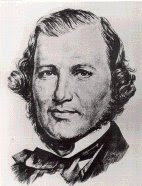A friend recently asked me whether it is possible to be ‘too rational.’ The following is a portion of my response:
Here's my first concern about the question: what could possibly be involved in being too (which I take to mean 'overly') logical? What would that look like? If characteristic 'x' exists in a person to a degree beyond that which is conducive to their happiness, we say that the person is 'too x' (e.g. 'too fat,' 'too aggressive,' or 'too pessimistic'). Happiness is the state of consciousness that arises from the realization of one's values. However, logic is a human being's only means of organizing perceptual data, i.e. our only way of learning about existence. Evidently, then, the pursuit of our own happiness requires learning about all different aspects of the world around us - what are the relevant facts? do these facts tell us anything about how we should act in the future? what does that mean our values should be? how ought we to pursue those values once we've identified them? etc, etc, etc. Consequently, a process of thought (to wit: a chain of reasoning) is a necessary condition for our happiness. And the more efficacious our process of thought, the better able we are to pursue and realize our values!
To put the point differently: the strict application of logic could not possibly endanger our well-being since it exists in a proportional relationship with it. If we think rationally, we can identify the facts of the world, determine our values, pursue those values effectively, and achieve our own good in our own way.
As I suggest above, the question stems from a profound misunderstanding of the role that reason plays in the human cognitive process. It is, indeed, impossible on its face for a human being to be ‘too rational.’
Since I responded to the question nearly a week ago, however, I’ve queried a few acquaintances and have discovered that the mistake is far more common that I had thought. There seems to be a general impression that a bargain can be struck between reason and some other sham faculty of awareness, whether it be intuition, revelation, or a sixth sense.
Dr. Leonard Peikoff formulates the full repercussions of striking such a bargain between reason and emotionalism with characteristic clarity:
If one attempts to combine reason and emotionalism, the principle of reason cannot be his guide, the element that defines the terms of the compromise, because reason does not permit subjective feeling to have any voice in cognitive issues. Subjective feeling, therefore, which permits anyone anything he wants, must set the terms; it must be the element that decides the role and limits of reason. Thus the ruling principle of the epistemological middle-of-the-road’er is: ‘I will consult facts and obey the rules of evidence sometimes – when I feel like it.'
Reason is an absolute. And, when it comes to the pursuit of knowledge, no compromise is possible between rationality and emotionalism.












|